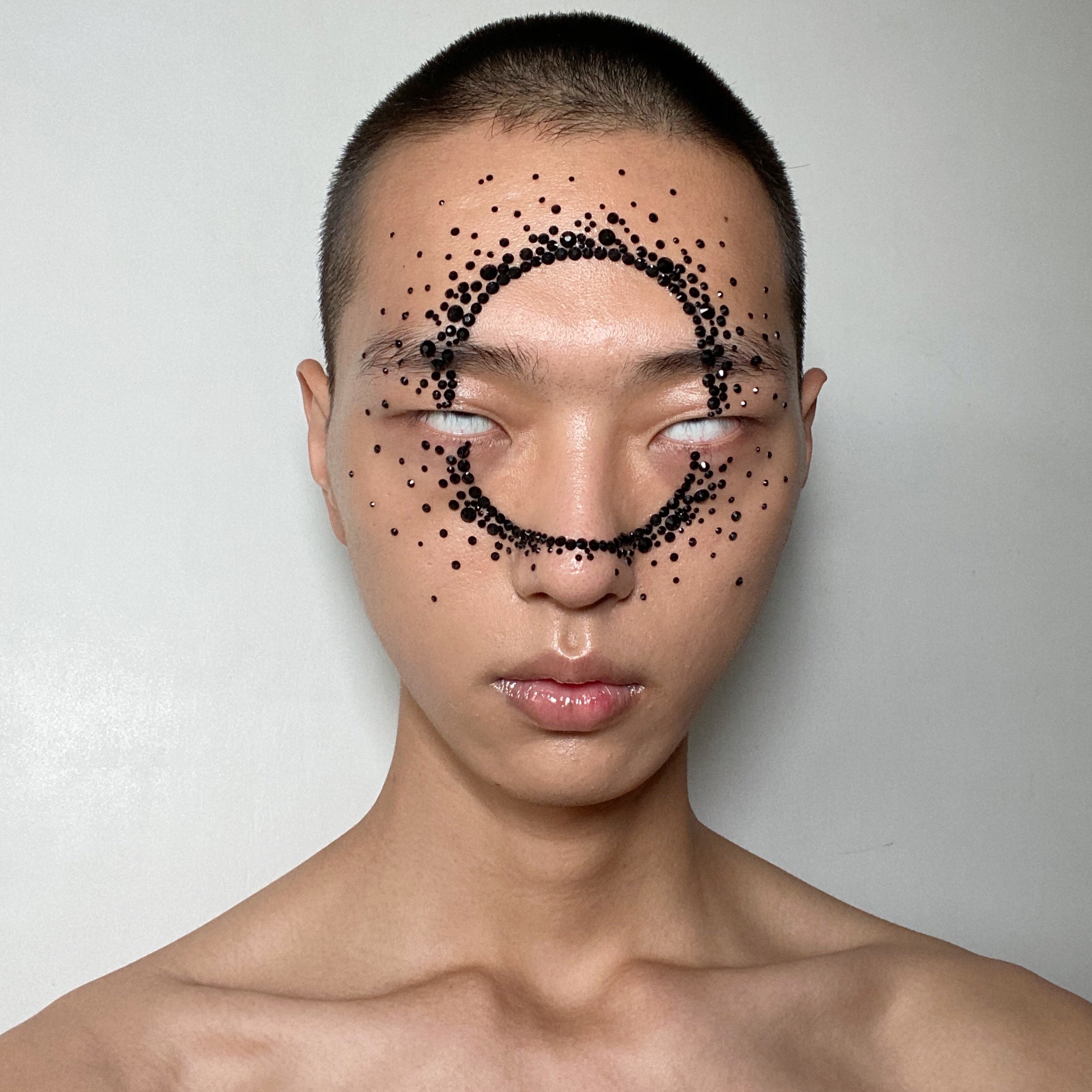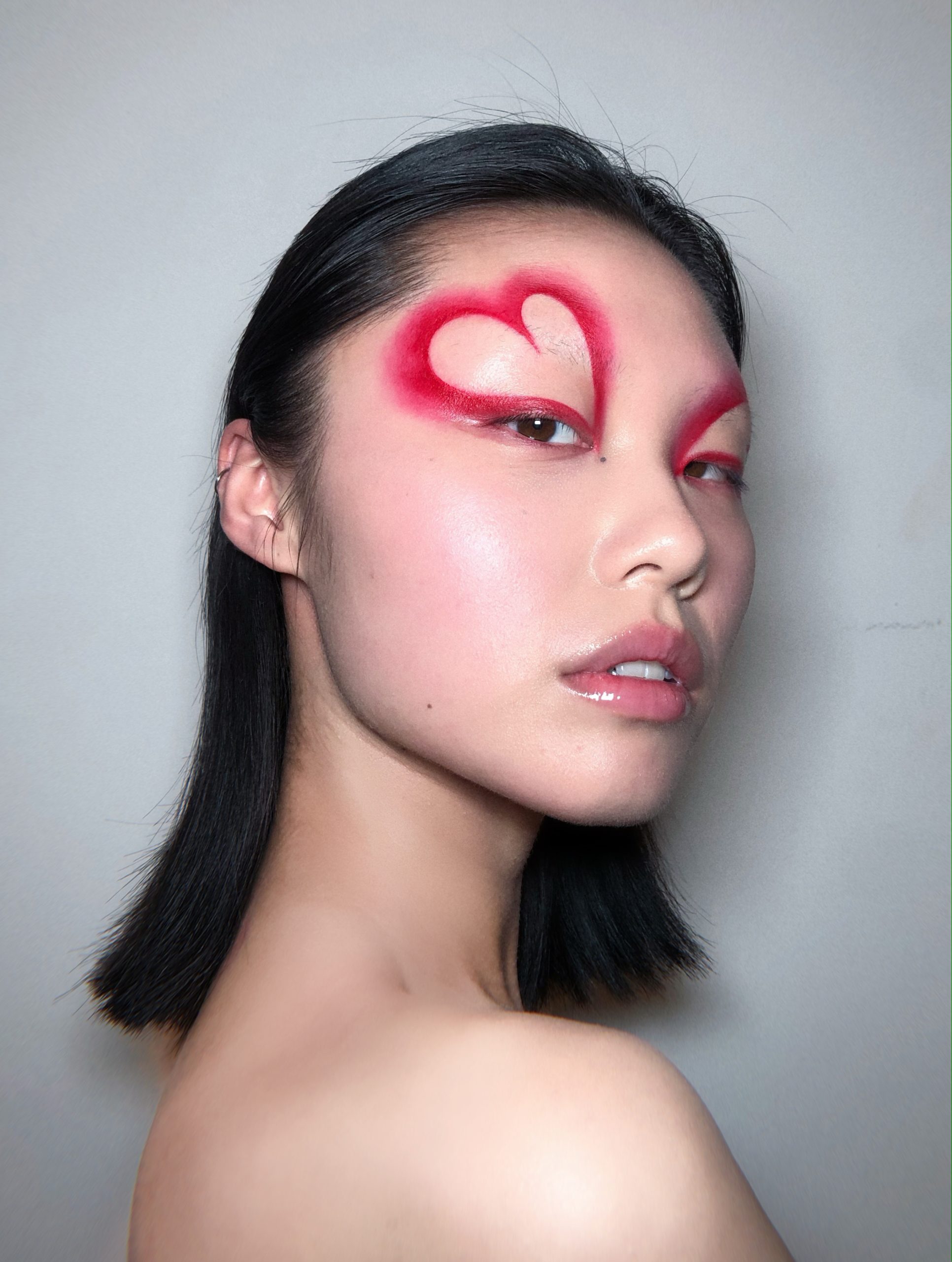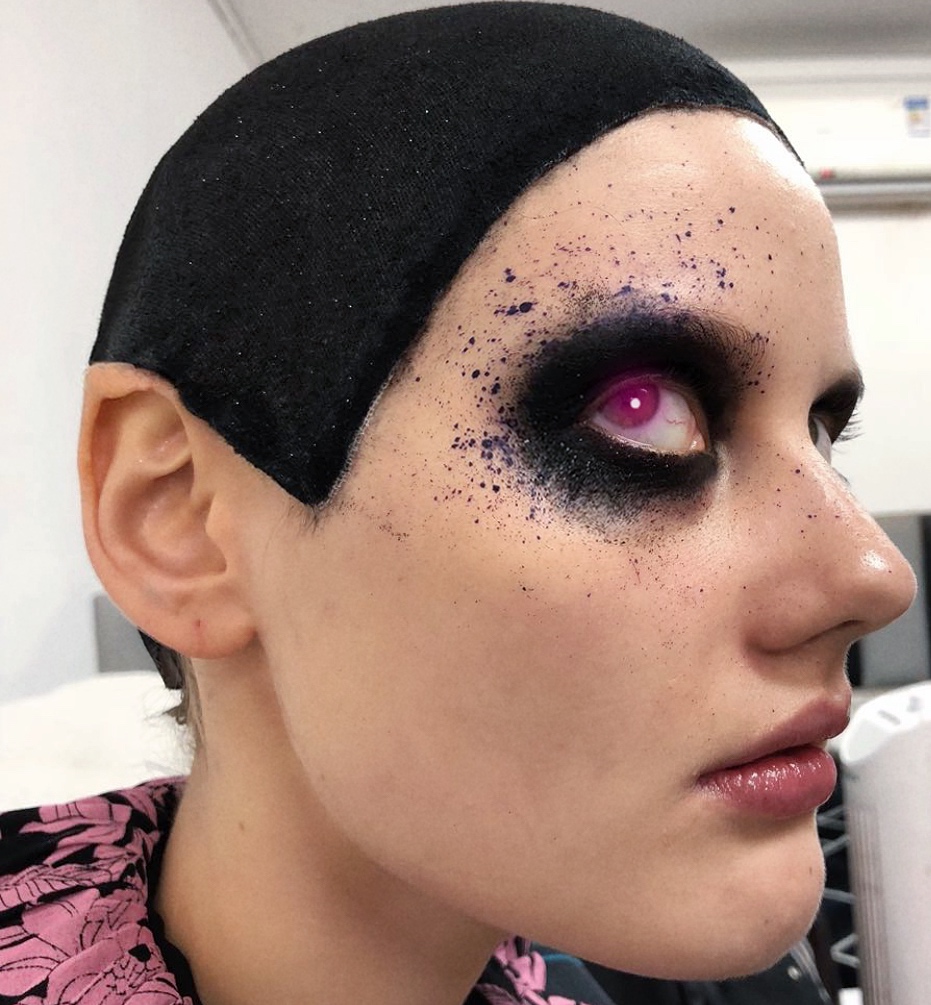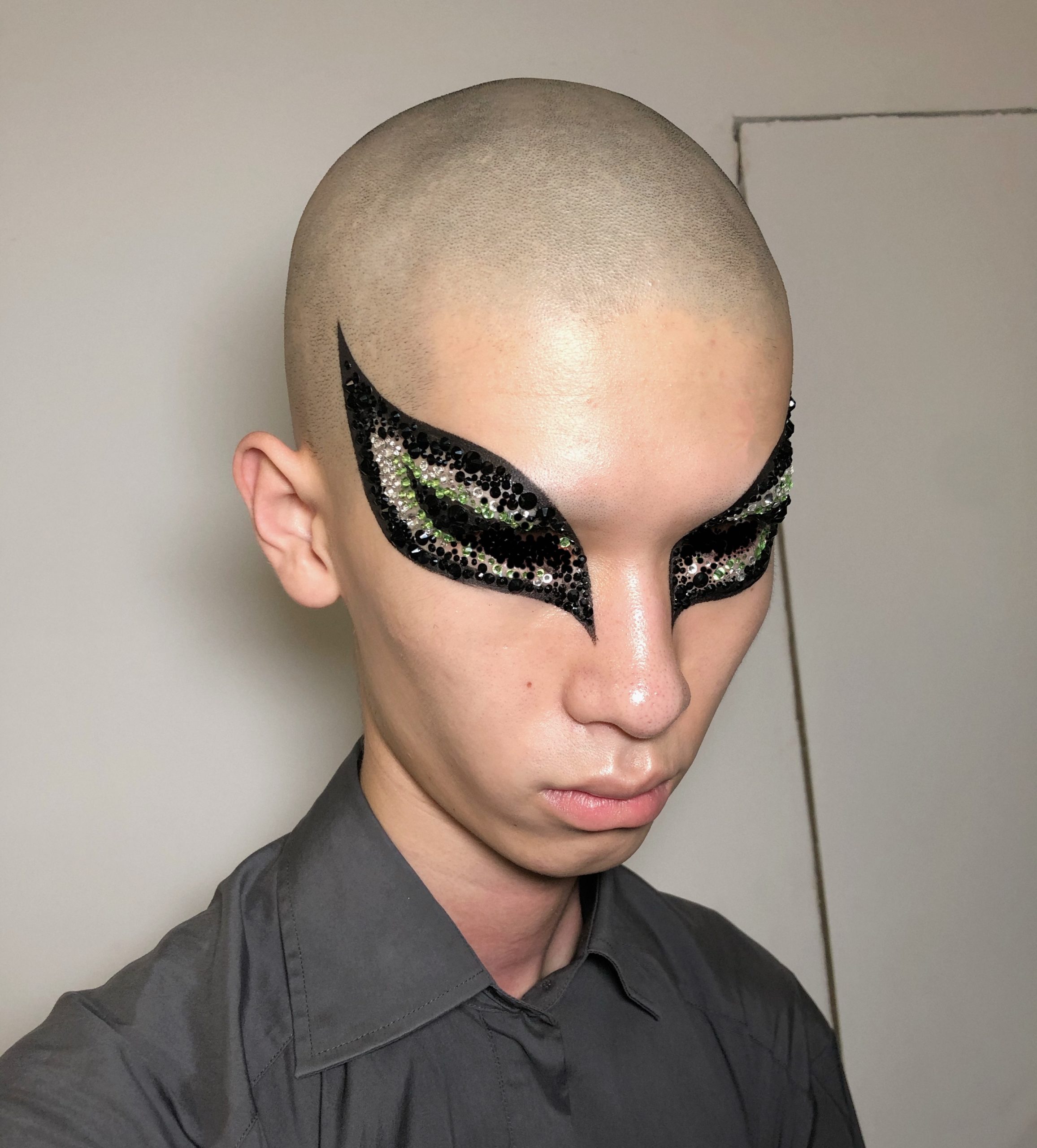We talk with the make-up guru about the history of body art and her creative process.

When it comes to pace-painting, body art and creativity through make-up, Valentina Li brings her A-game. Inspired by the rich, historical past behind her, we spoke to the creative (“not an artist”) to discuss the transformation process, and how the externalisation of the internal is a ritualistic act in which we all participate. Committed to her craft “for life”, we felt inspired to talk with her about her past, present and future within the industry and what we can hope for in today’s world of growing acceptance and appreciation.
On your Instagram, you identify as “not an artist”. Why is this and how would you therefore describe your craft and your work?
I often have weird or strange ideas come into my mind, and that’s what gets developed into my makeup or body-art designs. I’m not really interested in the definition of “artist.” That’s written on my Instagram to remind myself what I hope to become in 10 or 20 years. For now I’m just grateful to have a niche group of people who seem to appreciate my work.
Cosmetic body art, makeup and face-painting have been long-standing historic traditions, is this rich history something you consider within your process?
Makeup artists need an understanding of history and culture for almost every job. So I constantly look to the past for inspiration: old movies, old photographs, the colour and fashion in music videos… anything. People have been doing body-art for over 4,000 years, so there’s a lot to learn.
With time, makeup, as a craft, has become more accessible to the masses thanks to social media. Creatively, how do you think this movement has impacted you as an artist?
It motivates me! I’m glad people can express themselves using makeup and share what they’re doing. But social media is a double-edged sword. Beauty bloggers rarely mention that makeup takes years of study and training to master. I really hope my own social media doesn’t hide this – but inspires young people to take this craft seriously.

Many of us rely on our exterior to exemplify our internal identity. How do you feel your work acts on this process?
People do their own daily makeup based on styles they like, and sometimes that can reflect aspects of their identity. But when I’m working with models, I try to create something unique that you don’t see in daily life. It’s more like a combination of my interior and their exterior.
When creating in what ways do you consider the individual you are painting on, or is it more of a ‘blank canvas’ in your mind?
When we work on a fashion editorial or commercial shoot, makeup is just one part of a story we’re trying to tell. There are so many roles involved: photographer, model, stylist, hair stylist, editor, etc. And sometimes more than one of each. Everyone contributes their own perspective, but we all need to understand the common vision. So the “canvas” is not usually “blank” to start with. The fun is in finding room in this process for creative expression.
Body art, make-up and face-painting are very ritualistic acts. How do you consider this “ritualization”?
In the history of humanity, body- and face-painting were rituals used to make us stronger and more confident. Like applying war paint, or getting into character before a theatrical performance. Now, makeup is a modern ritual that transforms us and prepares us so that we can survive and thrive in a crazy world.


Your work often plays on deeper-conceptual-meanings; would you consider your work to be politically and socially charged? Or rather you create based on your current surroundings and what you find to be beautiful?
Just like there is freedom of speech, I also believe in “freedom of transformation.” I’m a big fan of alien movies and horror, and I’ve been obsessed with mysterious deep-sea creatures since I was a kid. I guess Nature is my biggest inspiration though. My personal project recently has been to transform humans into truly Natural beauty: insects, animals, plants, etc.
We live in a time where people are beginning to feel more comfortable externalising their inner selves; what developments have you seen within the world of face-painting in your career so far?
It used to be that face-painting was only for the theatre, film, and Halloween, but now people are using it to make statements about what they believe. The new developments in 3D effects makeup and Instagram filters are also very exciting. I consider all of that part of face-painting!
With this comfortability, experimentation within face-paint and make-up is also a growing trend; what do you hope to see in the future of your craft as well as your career?
I just want to be a makeup artist–for life. In order to keep growing, I’m planning to learn more about special effects and 3D effects. Not because I want that to be my specialty, but because I think it will open up some new possibilities and ideas for my current work.
Words by Grace Powell